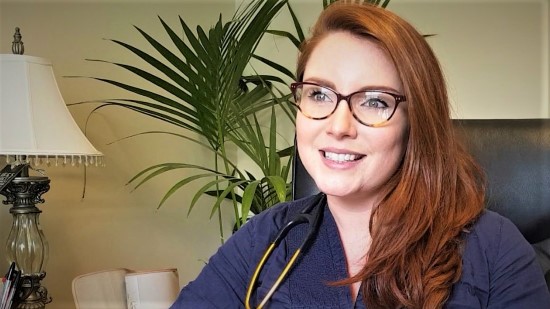What is a Physician Associate?
Physician associates are collaborative healthcare professionals with a generalist medical education, who work alongside doctors, GPs and surgeons providing medical care as an integral part of the multidisciplinary team. Physician associates are dependent practitioners working with a dedicated supervisor, but are able to work independently with appropriate support.
What do physician associates do
- Take medical histories from patients
- Carry out physical examinations
- See patients with undifferentiated diagnoses
- See patients with long-term chronic conditions
- Formulate differential diagnoses and management plans
- Perform diagnostic and therapeutic procedures
- Develop and deliver appropriate treatment and management plans
- Request and interpret diagnostic studies
- Provide health promotion and disease prevention advice for patients.
Currently, physician associates are not able to:
- Prescribe
- Request ionising radiation (eg chest X-ray or CT scan).
How do Physician Associates fit into the NHS workforce?
Although physician associates are dependent practitioners, they can also practise independently and make independent decisions. This is enabled by collaboration and supportive working relationships with their clinical supervisors, meaning that there is always someone who can discuss cases, give advice, and review patients if necessary.
‘ I love being a physician associate because I feel valued as part of the multidisciplinary team working in the NHS... I feel the role enables me to work with the wider healthcare team to provide good quality care and improve health and wellbeing outcome.’
How can they help physicians/the system?
Physician Associates increase the numbers of the medical workforce and increase access to quality care for patients. They act in an enabling role, helping to reduce the healthcare team’s workload. They bring new talent to the NHS and add to the skillmix within the teams. While trainee doctors and surgeons rotate through different specialties, physician associates offer continuity of care for patients, as well as institutional memory for the team in which they work. Physician associate support also provides cover so that trainee doctors and surgeons can attend training, clinic or theatre.
Case study
George Eliot Hospital currently employs ten physician associates across our medical specialties. Physician associates are trained to perform a number of roles, including taking medical histories, performing examinations, diagnosing illnesses, analysing test results and developing management plans for the care of patients. Their role is becoming essential within our hospital as they support our trained doctors with the everyday care that our patients need. In a recent visit to our trust, the Care Quality Commission highlighted physician associates as an area of outstanding practice. George Eliot Hospital is very proud of our physician associates and their commitment to improving our services and delivering high-quality, patient-centred care.
What training and qualifications do Physician Associates have?
Physician Associate students already have an undergraduate degree in a life science and/or a significant background in healthcare. To become a Physician Associate, students take a 2-year, full-time, intensive postgraduate course in medical science and clinical reasoning; this consists of 50% theory and 50% practice. It includes over 1,400 hours of clinical placement experience in both acute and community settings, starting at an early point of the course. This training is based on the Competence and curriculum framework for the physician associate (Department of Health 2006, revised 2012). The UK and Ireland Universities Board for Physician Associate Education links together all of the universities in the UK that provide physician associate courses. It provides a network for setting standards for education and delivery of the physician associate curriculum and for sharing best practice. A list of UK universities that currently offer courses in Physician Associate studies is available on the FPA website, at: www.fparcp.co.uk Students must pass both their university programme and the UK physician associate national examination to be able to work as a Physician Associate.
Once qualified, Physician Associates must:
-
Maintain 50 hours of CPD each year
-
Sit a recertification examination every 6 years.
What safeguards are there for the quality of patient care?
In order to ensure public protection and safety, there is an established Physician Associate Managed Voluntary Register (MVR) that physician associates are strongly encouraged to join. Most employers require registration on the MVR prior to employment. The register has a code of conduct, scope of professional practice and a fitness to practise mechanism, which enables concerns to be raised and investigated appropriately until such time that Physician Associates are regulated.
Do Physician Associates specialise?
While physician associates can work in specialties and subspecialties, and may become very established in a specific specialty, they need to maintain general medical knowledge and to demonstrate this by passing a recertification exam every 6 years. It is a versatile role that can cover mental health, general practice and a large number of hospital specialties.
How much does a Physician Associate earn?
The average annual salary for a Physician Associate in the UK is £35,000, with a starting salary of around £31,000. Most Physician Associates are on either band 6 or band 7 in Agenda for Change.
How much annual leave does a Physician Associate get?
Annual leave will vary between acute and primary care service and will also depend on length of service in the NHS, but tends to be in the region of 27 days.
What does the Faculty of Physician Associates do?
The Faculty of Physician Associates (FPA) is the professional body representing physician associates. The FPA is based at the Royal College of Physicians. The function of the faculty is to develop and represent the UK Physician Associate profession as a whole, including:
- Supporting education and professional development
- Achieving statutory regulation of the profession
- Managing the national certification and recertification examinations
- Accrediting physician associate education programmes within universities
- Administering and overseeing the running of the Physician Associate MVR.
Physician Associates in Primary Care
A range of resources about the role and impact of Physician Associations in primary care are available at the Faculty of Physician Associates website.
Further information, FAQs and local contacts are also available: www.fparcp.co.uk
Resource Documentation
Once the template above is completed please email -




